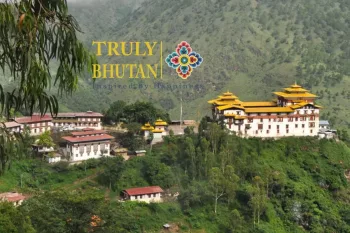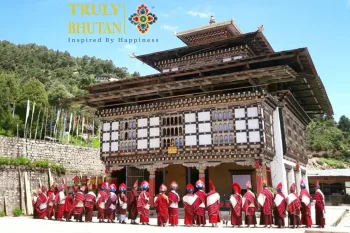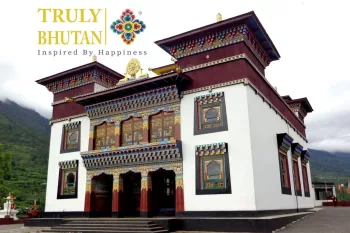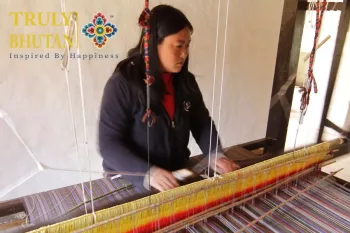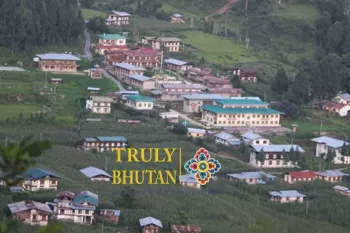We locate Radhi village some 30 km east of Trashigang Dzongkhag on a north-facing hill. It is partially a dry Chirpine region in its lower part and the upper part is covered with chilly broadleaf woodland. It is drained mainly by two minor tributary systems, specifically Chongdiri in the east and Yudiri in the west. It comprises 29 square km within an elevation varying from 1,080 masl to 3,220 masl. The monthly average climate ranges between 12 degree Celsius to 22 degree Celsius and the average annual rain is1,353 mm and is a part of the Gamrichu watershed.
Radhi village is distinguished for two subjects, its rice fields and the ingenuity of its weavers. It is often identified as the ‘Rice Bowl of the Trashigang’ because of its lush rice fields that produce most of the grain in the eastern parts of the region.
The Radi community includes around 200 homes, all of which the families carry out a livelihood from pure raw silk or bura textiles during the off-agricultural periods. All textiles made in Radhi are produced utilizing conventional back-strap loom and traditional dyes. As an end, Radhi village provides some of the most authentic high-quality raw silk textiles to be discovered anywhere in Bhutan.

